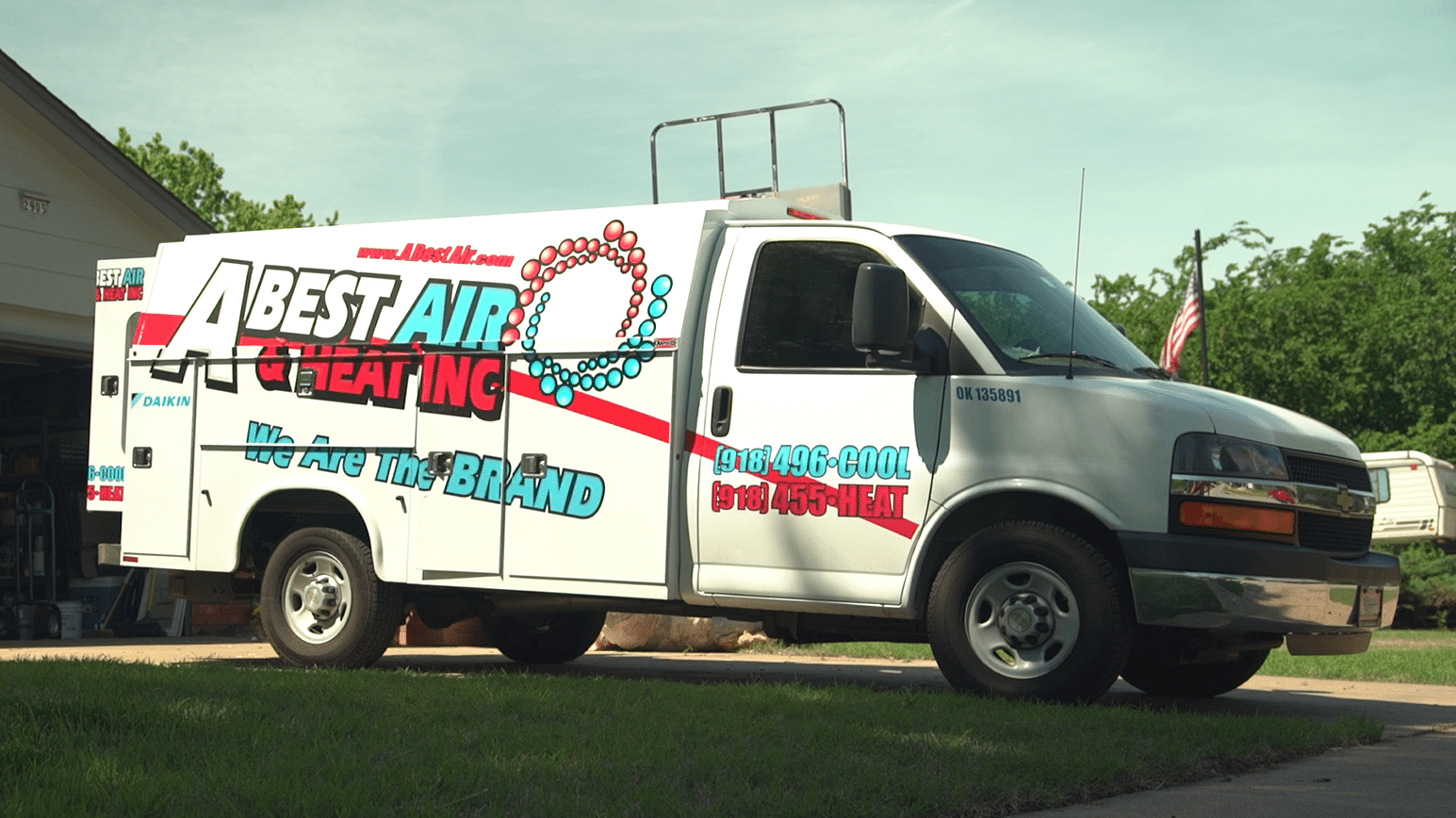




Frequently Asked Questions
24/7 Service | Up Front Pricing | No Overtime Charges | 100% Satisfaction Guarantee | Lifetime Warranty on Select Brands
Lifetime Warranty
We offer Lifetime Warranty on select brands of home Air Conditioning & heating equipment, to ensure that you and your family are comfortable for years to come.
Upfront Pricing
Our repair and installation prices are predetermined, so you are never subject to hidden charges, and our prices are the same for everyone.
Family-Owned
As our customer, we view you like a family member, and we’ll treat you the way we’d like to be treated.
24/7 Same Day Service
We’re available 24/7 and we never charge more for coming to your home after hours.
Air Conditioner (AC) Service FAQ
There are actually several factors that can wind up leading you to replace your existing air conditioning system. If it’s required a number of costly repairs in recent years, chances are that you’re better off getting a new one rather than continuing to spend money fixing an old unit. Frequent repairs are a good sign that your system is on its last legs anyway. By replacing instead of repairing, you’re likely to save quite a bit of money in the long run.
Even if you have an older system that still seems to work, it may be worth considering a replacement anyway. This is because the newer models available now are just so much more energy efficient than even 10 year old systems that they can save you a substantial amount on your monthly cooling bills.
This savings will actually offset the cost of replacement and installation rather quickly, making it a very economical decision. Plus, you’d have to replace your older system anyway in a few years. Why not start saving money now?
There are several types of air conditioning systems that you can have installed in your home, and they each have certain benefits. For instance, ductless mini–split systems are ideal for smaller homes and spaces where installing ductwork isn’t an option. These types of systems consist of an outdoor compressor unit and indoor, wall–mounted units that each have their own individual thermostat. They provide excellent temperature control and can be installed virtually anywhere.
For larger homes, however, packaged air conditioning systems are often a more appropriate option. Particularly if you have ductwork already in place, a packaged air conditioning system will serve you quite well. These systems also come with an outdoor compressor unit, which delivers cool air throughout your house via a system of ducts and vents.
And if your cooling needs surpass even the impressive output of the packaged system, you can always opt for a central air conditioning system. Although these are most common in commercial structures like malls and movie theatres, or in larger office and apartment buildings, some large homes are served quite well by central air conditioners as well.
It very well may be. Ductless mini–split air conditioning systems can include multiple indoor units, and can service a pretty extensive area of a moderately sized home. They’re economical to install because they don’t require ductwork. Instead, the outdoor compressor supplies coolant to the indoor units directly through a refrigerant line. This makes installation less invasive, and also makes it possible to install air conditioning in rooms that would have been inaccessible for other types of systems.
Ductless split systems can also save you money on your monthly energy bills because each indoor unit has its own individual thermostat. That way you can choose to cool only the area that you inhabit at the moment and you don’t have to pay to cool the other empty rooms of your house.
Although the lifespan of air conditioning systems can vary considerably, it’s reasonable to expect a new system to last between 10 and 15 years. With proper maintenance and care, many newer systems can last even longer.
There are several warning signs to watch out for that may tell you that there’s something wrong with your air conditioner. For instance, if you notice the compressor unit making an unusual amount of noise, it’s worth calling AC technicians to have them take a look for you.
Also, if your monthly energy bills go up dramatically, it’s reasonable to suspect that your air conditioner might not be working the way it should. Similarly, if your home isn’t being evenly cooled like it used to, you’ve probably got a system in need of repair.
Heating FAQ
You should consider replacing your existing heating system in several different instances. For example, a heating system that requires repeated and frequent repairs is probably worth replacing. It’s likely not very efficient and may not last much longer anyway. You can save yourself a lot of aggravation as well as money by replacing the heater sooner rather than later.
You should also consider investing in a new heating system if your current unit is more than 10 years old. Even if it seems to still be working well, the newer systems are so much more energy efficient that you’ll come out on top anyway. The monthly energy savings you’ll incur immediately will quickly offset the replacement and installation costs for your new heating system.
AFUE ratings tell us how energy efficient a particular heating system is. At this point, only heating systems with an AFUE rating of 80% or better are even sold, although if you have an older system its AFUE rating could be significantly lower than this. Current models are usually 80% AFUE or 90+%.
To a very small degree, an electric furnace is technically safer than a gas powered furnace. However, as long as you maintain your gas furnace properly, the risk of anything going wrong with it is quite slim. In particular, the newest gas furnaces are quite safe, quiet and energy efficient.
The lifespan of your particular heating system will depend on quite a few things. For instance, an electric furnace will typically last longer than a gas one, and so on. But at the least, you should expect any new system you have installed to last you at least 15 years. Keeping up with regular maintenance can extend the life of your heating system considerably, as well as cut down on repair and energy costs over the years.
There are many factors to consider when you’re trying to decide which home heating system is the best for you and your family. The size of your home, its layout, the type of climate you live in and the particulars of your family’s heating needs will all play a role. You’ll also want to make sure that you get a system that’s efficient and can heat your home comfortably without costing you ridiculous amounts of money on your heating bill each month.
This may seem like a lot of information to take into account, and it can be hard to do on your own with no real frame of reference to refer back to. That’s why you should always have a heating expert assist you in making this difficult decision. They can help you sort through all of the data to find the heating system that’s best for your home and your family.
Indoor Air Quality FAQ
High efficiency particulate air (HEPA) filters are generally considered to be the best way to eliminate many different forms of airborne contaminants from your indoor air. The HEPA filters typically found in home air purification systems are judged to be effective at removing 99.97% of particles sized 0.3 microns or larger. With this kind of efficiency and effectiveness, it’s hard to see why you wouldn’t want to include a HEPA filter as part of your home air purification system. While there are some other options including electronic air ionizers,HEPA filters are safe, effective and cheap to maintain. As long as you replace them regularly and keep up with a regular maintenance schedule for your entire home heating and cooling system, you should be able to enjoy clean, contaminant–free indoor air for many years to come.
The frequency with which you’ll need to change your air filters will depend a lot on what type of filters you have. Some products should be changed as often as every 90 days, while others can go an entire year without replacement and still be effective. The professionals who install your home air purification system can tell you how often it is recommended that you change your filter. However, depending on the pollution load that the filters in your house are required to handle, you may need to change them a bit more frequently than the manufacturer suggests.
Humidifiers actually provide quite a few excellent benefits to your home that you may not be aware of. Having an indoor air supply that’s too dry can cause all sorts of uncomfortable side effects like dry or itchy skin and cracked nasal passages, and it can even cause damage to your wood furniture and fixtures. Dry air is also not as effective at conducting and holding heat as properly humidified air, meaning that you’ll have to have your heat turned up higher in order to achieve a comfortable indoor environment. With an effective humidification system, however, you can keep your thermostat turned down a few degrees and still keep warm all winter long.
Of course, having too much humidity in your home isn’t good either, and the right humidification system can help you control this type of problem as well. Damp air can also damage woodwork, and it helps to promote the growth and spread of mold, leading to deterioration in your indoor air quality as well.
There are quite a few different factors to consider when you’re trying to select the right indoor air purification system for your home. The size of your house is certainly important, as is the type of particulate contaminant that you would like to focus the most on eliminating. Because of the many elements involved in making this type of decision, it can be very helpful to have the advice and guidance of an expert to make the process a smoother and less frustrating one. Indoor air quality experts can answer whatever questions you may have to help you make an informed decision about which air purification products are right for you.
While many air purification systems are effective at removing allergens like dust mites, pollen and pet dander, they’re not all able to get rid of bacterial and viral contaminants quite as effectively. For that, you need something that can actually kill the bacteria and viruses so that they will stop circulating throughout your home, and that’s exactly what UV germicidal lights can do. By choosing an air purification system that includes UV germicidal lights, you can ensure that your family won’t be subject to nasty germs flying around in the air all winter long.
